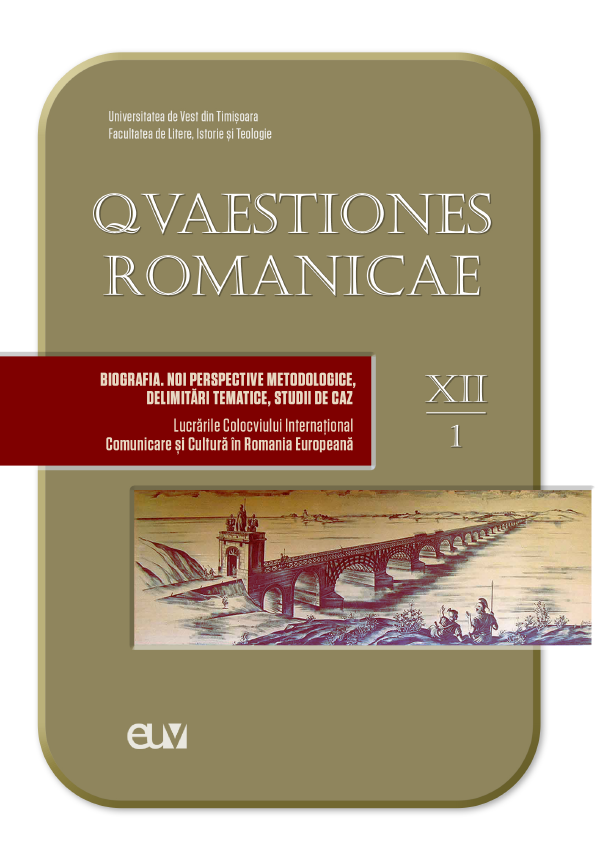Câteva note despre autoficțiunea autohtonă
Abstract: (A Few Notes on the Romanian Autofiction) At the beginning of the 3rd millennium, along with the emergence of a new generation of Romanian prose writers, a series of discussions related to the specificity of their writing was launched in the literary arena. Literary critics noticed, among other things, a general tendency towards the homodiegetic narrative, combined with the young writersʼ inclination to using their own biographies as narrative material. The inclusion of such writings in the (sub)genre of autofiction was inevitable. The term autofiction was formally used by the French novelist Serge Doubrovsky. Doubrovsky first employed it in 1977 to define a genre that might be labeled in an over-simplified manner as fictionalized autobiography. Nevertheless, autofiction as a fictional (sub)genre has been persistently commented on, contested and redefined in the following decades. Within the realm of Romanian literature, autofiction is generally associated with a generation labeled as “douămiiști” (or “millennials”). The writings of such authors as Ioana Baetica, Alexandru Vakulovski, Ionuț Chiva, Dan Sociu, etc. were systematically analyzed and commented from this perspective. The present study tries to suggest a few explanations for the resurgence of the Romanian “autofictional wave” in a historical context, connecting it both with the dominance of the memorialistic writings during the previous decade, and with the fracturist literary movement, whose members are constantly mentioned among the autofiction writers.
Keywords: autofiction, biography, fracturism, homodiegetic narrative, Romanian literature.
Rezumat: La începutul mileniului al III-lea, odată cu apariția unei noi promoții de prozatori, în spațiul literar românesc s-a lansat o serie de discuții legate de caracteristicile scrisului acestora. Criticii literari au remarcat, printre altele, o tendință accentuată de utilizare a narațiunii homodiegetice, combinată cu recursul prozatorilor la exploatarea propriei biografii ca material narativ. Încadrarea unor astfel de scrieri în (sub)genul autoficțiunii era inevitabilă. Termenul de autoficțiune a fost utilizat inițial de prozatorul francez Serge Doubrovsky, care îl folosește pentru prima oară în 1977 pentru a defini un gen de proză ce poate fi etichetat simplist drept autobiografie ficționalizată. Cu toate acestea, autoficțiunea reprezintă o categorie ficțională complexă, comentată cu insistență, controversată și redefinită sistematic în deceniile următoare. În literatura română autoficțiunea este asociată generic cu prozatorii din generația numită „douămiistă” (sau a „milenialilor”). Scrierile unor autori precum Ioana Baetica, Alexandru Vakulovski, Ionuț Chiva, Dan Sociu ș.a. au fost analizate și comentate din această perspectivă. Studiul de față încearcă să stabilească câteva explicații ale resurgenței „valului autoficțional” românesc în context istoric, în conexiune cu dominația genului memorialistic din deceniul anterior, precum și programatic, prin raportare la mișcarea literară fracturistă, ai cărei membri apar permanent pe lista autorilor de proză autoficțională.
Cuvinte-cheie: autoficțiune, biografie, fracturism, literatură română, narațiune homodiegetică.
